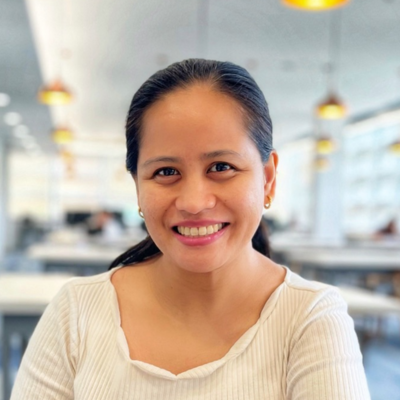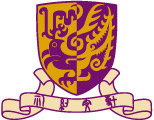
Discovering the Holistic Advantage
When Jenina Nalipay decided to pursue her PhD in Education, she did her research and asked around, and eventually found her way to The Chinese University of Hong Kong (CUHK). Knowing full well she was in for an academic challenge, what she didn’t expect was the transformative personal and professional growth that she would experience during her time there.
“CUHK is very holistic in terms of how they prepare their students,” she said. “It’s not just the classes and coursework, but they give you lots of advice and truly prepare you for what to expect in the real world after graduation.”
So aside from academia, Jenina says there are countless extracurricular activities for students to socialise, pursue their interests, and even plenty of opportunities to hone your language skills.

Coming from the Philippines, Jenina had already established herself as a psychology researcher and educator who practised in clinical psychology at an NGO that supported abused children. She later moved to Hong Kong to work as a research assistant before pursuing her PhD.
“This was around the time of COVID, and I read and saw the news that many teachers were depressed while also teaching students facing mental health problems,” she explains. “It was a difficult time adjusting to a new situation, and I thought, what if I could actually help teachers know more about mental health?”
A Holistic and Interdisciplinary Approach
As a co-recipient of the Interdisciplinary Research Seed Fund from the CUHK Faculty of Social Science, Jenina says she has benefitted hugely from the University’s holistic and interdisciplinary approach to PhD education. Especially in her field of research, she found that CUHK’s collaborative spirit often extended beyond her immediate supervisors. As such, she had the opportunity to work on interdisciplinary projects with students and professors from other departments who contributed tremendously to broadening her perspectives and skillsets.
“I got to work with students from the Department of Educational Psychology and others, and this is so important because when you become an academic you have to know how to collaborate with other scholars,” she said.

And this collaborative and holistic philosophy continued to extend and manifest itself in various ways throughout her academic journey. In addition to the rigorous coursework, she was encouraged to explore her interests outside of the classroom, from learning Cantonese to attending art classes.
“I think these activities were very helpful and useful in developing my soft skills,” she said. “By attending those activities, I also met other students, learned about their journeys and experiences, and reflect on my own as I listened to their stories.”
Plentiful Support and Opportunity
Jenina’s supervisors also played a crucial role in this process, providing not only academic guidance but also in terms of career coaching and emotional support.
“I really appreciate the supervision that I got from my supervisors; we don’t just talk about research, they frequently check in on how we are doing. They introduced us to many different opportunities, connecting us with other students and faculty members,” she explained.
Thanks to this, she believes that CUHK not only honed her skills to be a better researcher but also “helped me become a better version of myself”, she added.
Some Key Advice
So, for those who are interested in applying for CUHK, she has a few words of advice. Firstly, she emphasises the importance of choosing your supervisor carefully. If you have a specific topic in mind, make sure that it aligns with their interests and what they are doing.
“There needs to be a clear match between the kind of guidance you need to get to do your research and pursue your career goals,” she said.

Secondly, she advises prospective students to look beyond research and academics, encouraging them to take full advantage of all that the University has to offer.
“The environment at CUHK is very conducive to collaboration. During my PhD, I collaborated with other professors that are not necessarily my supervisors, and I also managed to do research with students from other departments,” she said.
And lastly, she says to embrace the holistic experience.
“Try to learn as much as possible in as many areas as you can. Beyond your study and research, there are a lot of things that you can gain,” she said.



